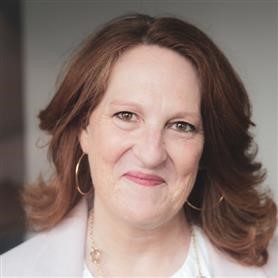"Solving the global climate change crisis is going to rely on, in one way or another, changing human behavior.” — Center for Behavior and the Environment
What’s keeping global leaders up at night? A sense of urgency about addressing climate change and driving sustainability and equity outcomes.
In the Deloitte 2023 Global Human Capital Trends survey, 84% of respondents acknowledge that understanding the impact of sustainability on their organization and defining ownership for driving progress and outcomes is important to their organizations’ success. Yet only 21% believe their organizations are very ready to address such issues.
Creating clear, bold and inspiring climate goals sends an unmistakable signal of intent to investors, customers and employees. But leaders need to quickly translate goals into action, which requires changing behaviors throughout the organization.
Identifying the desired behaviors to drive sustainability is a complex and sometimes challenging process that requires a fundamental shift in behaviors to limit potential resistance. As professional communicators, how can we leverage the art and science of change to meet ESG and sustainability objectives?
Whether you’re partnering with your organization’s change management team or in a change management/communications role, consider these ideas:
1. Leverage Behavioral Science
Humans can be irrational and emotional when it comes to changing behaviors. We tend to favor our existing beliefs (confirmation bias), cling to past behaviors (commitment bias) and, when confronted with changing the status quo, we’d rather avoid a potential loss than risk a potential gain (Prospect Theory).
Knowing this, we can encourage stakeholders to adopt new behaviors, helping them see how the desired change can result in avoiding loss or gaining something they value. For example, the sales team may believe, based on previous experience, that the best or only way to engage with customers is to travel onsite. When their organization introduces ESG-driven travel limitations, they might resist the change and cling to their time-honored approach. The organization could encourage behavior change and new policy adoption by helping these employees see how reduced travel could also help them avoid losing personal or family time that business travel often requires.
2. Shape a Human-Focused ESG and Sustainability Narrative
When we understand human tendencies, we can shape communications that account for them. Storytelling appeals to the human brain. It fosters understanding and drives new behaviors. However, “When it comes to sustainability, few companies seem to have mastered the art of storytelling,” Joel Makower, chairman and co-founder of GreenBiz Group, says. “And to the extent they tell stories, they’re all too often filled with impenetrable jargon, head-scratching facts, overarching generalizations — and way too many buzzwords — that can undercut or obscure whatever message they’re trying to communicate.”
Effective ESG and sustainability storytelling is possible. As communicators, we can:
- Mine scientific data to find a human-centric story hook. “Stories are just data with a soul,” communications expert Carmine Gallo says. Help reporters, customers and employees interpret climate science. Tell the story behind the numbers.
- Share compelling stories about sustainable behavior change, helping stakeholders understand the why behind ESG and sustainability change, and their role in it.
- Through story, acknowledge and empathize with underlying emotions about ESG and sustainability change.
- Advocate for equity and accessibility in all ESG and sustainability messaging.
3. Align Leaders
Sustainability is everyone’s business; it’s not limited to the chief financial or sustainability officer. The climate emergency presents a pivotal opportunity for communicators to advise the nearly 80% of leaders who don’t believe their organization is ready to address it.
Multiple priorities for organizations and leaders can create a clash of interests and lack of alignment on driving climate change solutions forward. Communications advisors can help align leaders on ESG strategy and their crucial role in championing and modeling sustainability change. Securing alignment unites leaders so they convey messages consistently and authentically and reflect a genuine commitment to ESG and sustainability objectives. Without alignment, organizations potentially risk disjointed communications and limited or inauthentic leadership commitment.
To encourage buy-in, offer valuable media analysis and stakeholder sentiment data. Counsel leaders on reputation management in an era when a greenwashing label could inflict considerable damage. Position them as ESG and sustainability thought leaders inside and outside of the organization’s four walls.
4. Engage With Stakeholders Around How They are Impacted
Change expert and Harvard professor John Kotter estimates that 70% of change efforts fail — but understanding stakeholder sentiment can improve outcomes.
As you identify the behaviors that need to change to drive positive climate and sustainable impact, understand how this change might impact each group by actively listening to stakeholders — the humans at the heart of the change. Probe the finance and supply chain teams for their thoughts about the company’s new carbon footprint-driven supplier selection policy. Ask road warriors on the sales team how they feel about new travel limit policies to reduce the company’s carbon footprint. Then, develop stakeholder personas outlining significant moments that matter to each group. Incorporate this input as you engage them by making them the protagonists of the organization’s ESG journey. Touch base with stakeholders every few months to validate impacts and shift tactics, as needed.
Read about advancing the human element of sustainability here and learn more about human-focused ESG and sustainability communications at “Deepen Future-of-Work Communications in the Rising Age of the Green-Collar Worker,” an interactive workshop at the 2023 IABC World Conference on 7 June. Deloitte U.S. and Global Human Capital Sustainability, Climate and Equity Leader Karen Cunningham and Deloitte Communications Manager Lisa Abbott will lead this session.
Karen Cunningham and Lisa Abbott
 Karen Cunningham, Managing Director, Deloitte Consulting LLP
Karen Cunningham, Managing Director, Deloitte Consulting LLP
Karen Cunningham leads Deloitte’s cross-industry human capital market for U.S. and global ESG and sustainability, advising clients on managing industry disruptions and realizing their transformational goals through new ways of organizing, operating and behaving. She specializes in strategic change management, organizational alignment, workforce of the future and persona-driven engagement. She has several publications highlighting best-in-class strategic change management and has been awarded for her employee engagement work. She has a master of science in industrial organizational psychology from Illinois Institute of Technology.
 Lisa Abbott, Communications Manager, Deloitte Consulting LLP
Lisa Abbott, Communications Manager, Deloitte Consulting LLP
Lisa is a strategic communications leader at Deloitte, with nearly 25 years of public relations, marketing communications, and global internal and change communications experience across multiple sectors. She advises clients and helps them create and execute communications strategies to drive organizational change and outcomes. Abbott is a published author and has a bachelor of arts in public relations journalism and a master of science in management and leadership from Western Governors University.
Copyright © 2023 Deloitte Development LLC. All rights reserved.
Deloitte refers to one or more of Deloitte Touche Tohmatsu Limited (“DTTL”), its global network of member firms, and their related entities (collectively, the “Deloitte organization”). DTTL (also referred to as “Deloitte Global”) and each of its member firms and related entities are legally separate and independent entities, which cannot obligate or bind each other in respect of third parties. DTTL and each DTTL member firm and related entity is liable only for its own acts and omissions, and not those of each other. DTTL does not provide services to clients. Please see www.deloitte.com/about to learn more.
This communication contains general information only, and none of Deloitte Touche Tohmatsu Limited (“DTTL”), its global network of member firms or their related entities (collectively, the “Deloitte organization”) is, by means of this communication, rendering professional advice or services. Before making any decision or taking any action that may affect your finances or your business, you should consult a qualified professional adviser. No representations, warranties or undertakings (express or implied) are given as to the accuracy or completeness of the information in this communication, and none of DTTL, its member firms, related entities, employees or agents shall be liable or responsible for any loss or damage whatsoever arising directly or indirectly in connection with any person relying on this communication. DTTL and each of its member firms, and their related entities, are legally separate and independent entities.